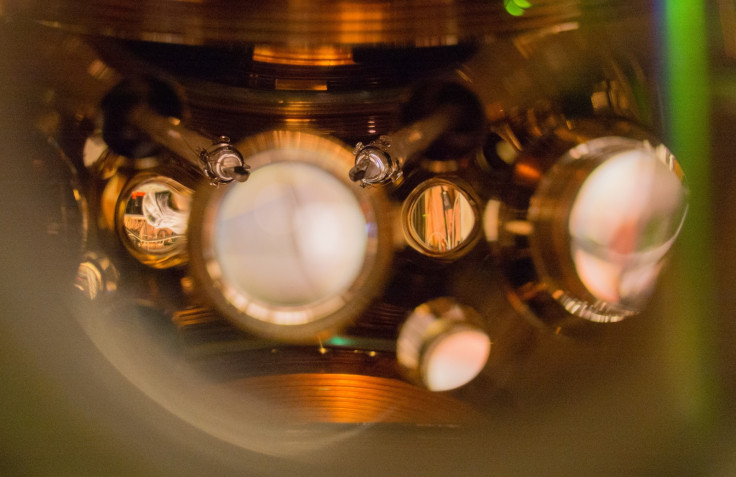World's most accurate atomic clock would not gain or lose a second in 15 billion years

The world's most accurate clock will not drop or gain a second in around 15 billion years, the National Institute of Standards and Technology (NIST) has annouaced.
With its latest modifications, the strontium atomic clock has become the most precise and stable ever produced.
The clock, described in Nature Communications, is now more than three times as precise as it was last year when the previous world record was set. It is also has improved its stability – how closely each tick matches every other tick – by 50%.
Precision timekeeping is important for advanced communications, positioning technology and experiments that look at quantum correlations between atoms. The clock is made of a few thousand atoms of strontium in 30x30 micrometre column of disk-shaped regions formed by intense laser light.
The clock at JILA, a joint institute of NIST and the University of Colorado Boulder, is now good enough to measure tiny changes in the passage of time and the force of gravity at different heights – which Einstein predicted in his theories of relativity.
It is now so advanced it is almost good enough for relative geodesy – the idea of using a network of clocks as gravity sensors to make 3D precision measurements of the Earth.
The improvements were made to reduce clock errors related to heat from the surrounding environment, dubbed blackbody radiation. Researchers inserted two platinum resistance thermometers into the clocks' vacuum chamber and built a radiation shield to surround the atom chamber.
This allowed the clock to operate at room temperature, instead of much colder cryogenic ones.
Researcher Jun Ye said: "The clock operates at normal room temperature. This is actually one of the strongest points of our approach, in that we can operate the clock in a simple and normal configuration while keeping the blackbody radiation shift uncertainty at a minimum."
© Copyright IBTimes 2025. All rights reserved.






















